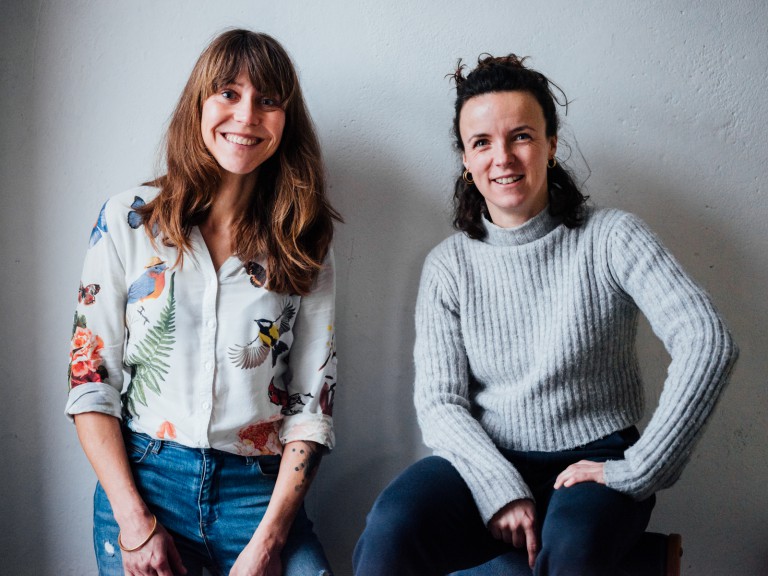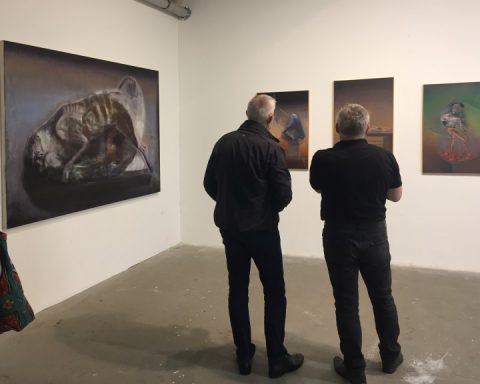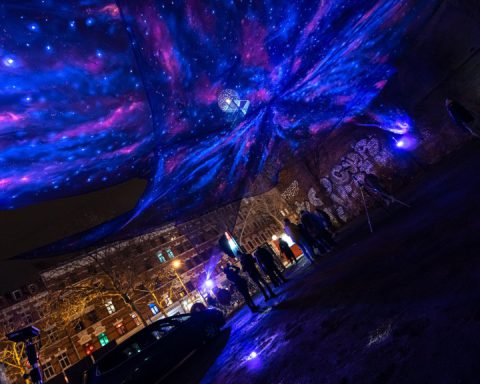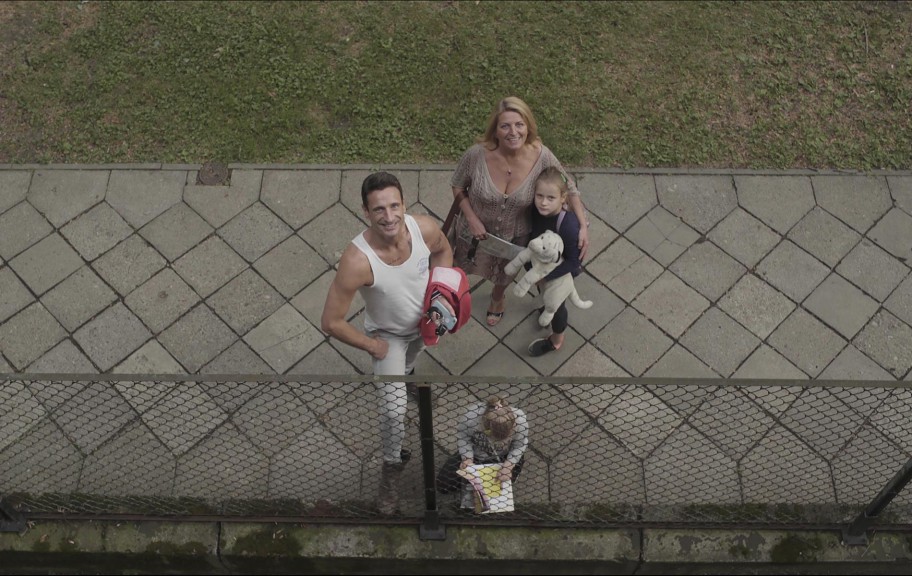For those people out there who are monolingual: do you ever think about the people who speak multiple languages and how incredible it is? If you’re studying and learning a language as an adult, do you find it challenging or like you hit plateaus? Well, me too!
When I hear of people speaking three or more languages, I think that is a tremendous achievement. Really, two or more languages makes my eyes widen.
I come from a country with two national languages, Canada, yet I’m only fluent in one. In fact, I barely remember anything of the other language. There are a few factors at play here. For one, I stopped learning French in a school setting at the age of 14. Secondly, I didn’t find French all that appealing while I was learning it. In school, at the time, learning a language consisted of a lot of repetition and verb conjugation. As a young teen – it was just boring. Several years later I went and lived in a French-speaking part of the country. I had fun volunteering at a daycare (with children age 5-6), where I learned their native language alongside them.
Moving to the side here, hopscotch a few countries over, and we’ve landed in Deutschland. The country with the language that people associate with aggression. I, however, do not. Hopefully, you also like German – well, sometimes at least.
Learning German as an adult
When I chose to move to Germany for another Abenteuer a few years ago, I did so with the goal to immerse myself in the language and integrate with the culture. I have not yet succeeded. In fact, my path has taken me for some loops. I was fortunate enough to qualify for some BAMF subsidy by taking German language integration courses when I arrived. (Side note: this information was only in German at the time – I researched it for myself.)
This is great! I thought. I wasn’t working, I had the motivation and the time to attend classes every morning five days a week. What’s more, I went to a language school where a large percentage of students are refugees. It was a unique and culturally diverse learning experience. Many students didn’t have English language skills. This forced us to communicate in German to be able to have conversations! I loved it.
Let’s be real for a minute here: I didn’t love every moment of it. Sitting in a classroom setting primarily focusing on grammar and sentence construction for two out of five days was a bit of a snore. For holistic learning though, all aspects of the written and spoken language should be considered, and they were.

My preferred moments happened when we students would be placed in small groups and asked to work on an activity together. It was good when the groups changed, so you were forced – in a good way – to interact with everyone in the class. Some students already knew each other from previous courses. I came to know a few classmates during my A2 and B1 courses, too. What was more, in the warmer months, one instructor always encouraged a picnic in the park.
Food is an awesome way to learn about different cultures in a relaxed environment.
I take that thought with me every time I travel somewhere new. As a non-fish-eater, if I’m somewhere coastal or where fish is a specialty, I’ll give it a try. When our German language teacher invited our group of Teilnehmer to a picnic in the park after one of our last classes in the Niveau, I really appreciated it. That German language teacher, Isabelle Wiedemeier, continues her great work, now in the form of a podcast.
Auf Integrationskurs – the podcast
Isabelle Wiedemeier, this food-fan German teacher, and her friend and colleague, Johanna Bender, started the podcast Auf Integrationskurs to learn from past German language students’ experiences. Having studied international student identity formations through cultural experiences, I feel a similar vein to these women and their team for the podcast: excited to learn about people’s life experiences and cultural identities!
Once I was introduced to Auf Integrationskurs, I was glad to have another opportunity for language learning on my own. The participants’ countries of origin are widely diverse, as are their German-level. For a language learner like me, I deeply appreciate this resource to learn more. At the same time, it provides historical and informational facts about different countries and what’s happening (or happened) in their culture. This often plays a role in why the interview participant has moved to Germany.

After being asked if I’d like to be interviewed for an episode, I had a newfound motivation to refresh my German speaking skills. We spoke on the phone for a pre-interview to get a feel for what areas we’d speak about and also to have a catch-up. My last German course was in the summer of 2019. My grammar has most certainly deteriorated. With the C-word (Covid-19), my use of the language, in general, has gone downhill from living in isolation. I was pretty excited because I’d been enjoying each episode I had listened to so far, even a couple twice to try to understand more of the stories discussed.
I asked Isabelle a few questions, and her responses are quite inspiring and interesting. Writing to her in German, she sent me some responses and I translated them to English here.
How long have you been teaching and how did you come to teach?
I’ve been teaching German as a second language since October 2014. I began at the Adult Education Centre in Grünau. The courses were preliminary courses for asylum seekers who were still waiting to hear from BAMF. Many came from Syria, but there were also some people from Chechnya, Georgia, Kosovo, Albania, Pakistan, Iraq, and North Africa. Unfortunately, many of them didn’t make it into the integration courses because they were deported. I’m still in contact with a few of them. Working with these people really touched me because I suddenly had such close, personal contact with people who were otherwise very superficially in the news. It was really intense. One of my interview partners from the podcast, Yasmin, I have kept in contact with since my very first course!
In February 2015, I taught my first Integrationskurs (Integration course) in parallel at another language school, shortly after a lot of literacy courses as well.
This is also very special and intensive, because the participants have little to no experience with learning, and you also have to bring in a lot of personal information to reach them.
I’m actually a trained journalist, but I was unhappy working for an online newspaper. I wanted to do something abroad or with foreigners, in part because my husband was Spanish and I lived in Spain for a long time. By chance, I came across “German as a Foreign Language” while googling. Funny enough, I never wanted to teach because both of my parents are teachers. Following in their footsteps was a ‘no-go’ for me. My father even taught guest worker children from Italy, Turkey, and Greece at his school, and in later years, he also taught Russian Germans. Well, somehow I became a teacher after all… Fortunately though, not for children. I’m really glad I am able to combine my two professions through the podcast!
Why did you and Johanna decide to create “Auf Integrationskurs”?
That was a long process. We taught a literacy/alphabet course together, we got along well and felt that we both wanted a little more. Working with migrants is meaningful work to us and we wanted to put more emphasis on people in public discourse.
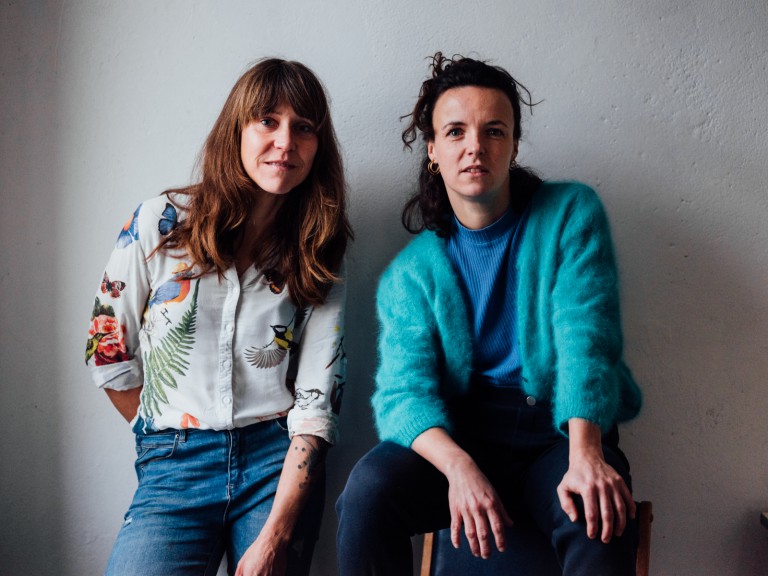
Johanna is very diversely interested, with artistic projects ranging from photography, theatre, and film – she is so active and courageous. At first, we created the “Initiative Integration” because we wanted to improve the integration courses. But to change something at BAMF, you need persistence and patience. From this, we came up with a few other ideas.
In February 2020, my sister came to visit Leipzig because she wanted to record a test episode for a podcast with me. After that, I thought: this is it! We’ll do a podcast with our course participants. Johanna also thought it was a great idea and we developed the concept together. Johanna had great contacts. Alex, a friend of hers, has a recording studio and he also reads our texts. Thomas, another friend, takes photos, and through Johanna, we also found a great web designer, Dana.
We’re both incredibly happy with our project and we hope it continues developing, with more listeners and more interviews. The stories really are all so interesting!
What are some challenges you see the language participants face? And what are some highlights you experience as a language teacher?
The challenges participants face in our courses are very, very diverse because we teach people from all over the world and in all age groups, from 18 to 80, who have all possible and impossible educational backgrounds. For those in the literacy course, tiny steps are huge successes; reading and writing words and later sentences on their own is something absolutely new for some people.
At the end of the course, they, unfortunately, have to take the same exam as participants in the general integration courses. For example, people like you, who have studied and received a university education. This is extremely frustrating for everyone and because of this, we lose so much time preparing them for what’s a much too difficult exam. We could easily use this time in a more productive way to help the literacy course students learn more. If participants don’t pass the exam, they often attend more German courses for years and fail the exam again and again. So, of course, they never really make it here. It would be better to work with the labour market to search for employment opportunities sooner.
Of course, German grammar is a big challenge for ALL participants. Adjective declination is one obvious example. Or understanding what accusative or dative is and when to use which. By the way, even I only learned these differences as a German teacher. Basically, I think it’s great that there are integration courses for immigrants. But, in my opinion, they should be more connected to real life. Unfortunately, we learn almost exclusively in the classroom and there aren’t networks through which we could make contact with the participants in “real life”.
It’d be better if the courses could take place where participants live, in their neighbourhoods, so that we could create real integration.
I think the biggest problem for many participants is that they hardly have any contact with Germans. I always recommend “Afeefa”, a great site, which simply strives to bring people together, no matter where they come from.
For me, the highlights of my work are always the personal moments. When I notice that participants enjoy the exercises, for example, when they have to do role plays in the classroom, pretending they’re at the doctor’s or at the bank, or when they work in groups and really start to talk or discuss in German. I often find it just beautiful and a great privilege for me to be able to spend time and work with so many different people from around the world! You really get to know each other in a very personal way in such a course, because we discuss all life-related topics.
Thank you for the interview!
I don’t know about you, but I sure found these responses inspiring! Learning a language, no wait – learning ANYTHING, is not an easy task. Having teachers or guides who are supportive and encouraging when you undoubtedly make mistakes can make such a difference in the learning experience. I certainly appreciate having the Auf Integrationskurs podcast as another language resource. It is one of the few ways I still engage with the German language.
As Isabelle pointed out in her responses, it’s difficult for foreigners to make domestic/local friends. I am fortunate because I have a German background so the culture wasn’t a total shock to me. I do have some German friends, and I’m so thankful to the friends and community I have built since moving to Leipzig a few years ago.
Now that Germany and many countries around the world seem to have an acceptable handle on the pandemic situation, is it time to start learning again? Or perhaps, you already learned something new during the prolonged ‘at-home’ time…

